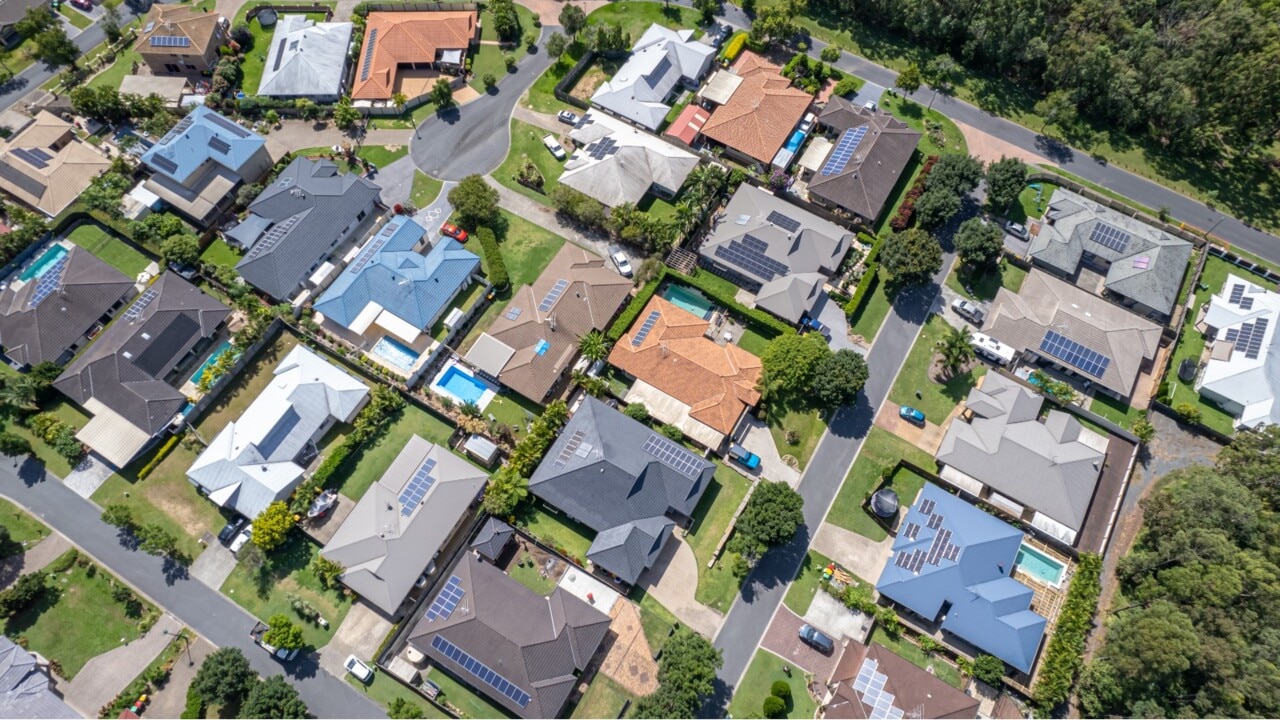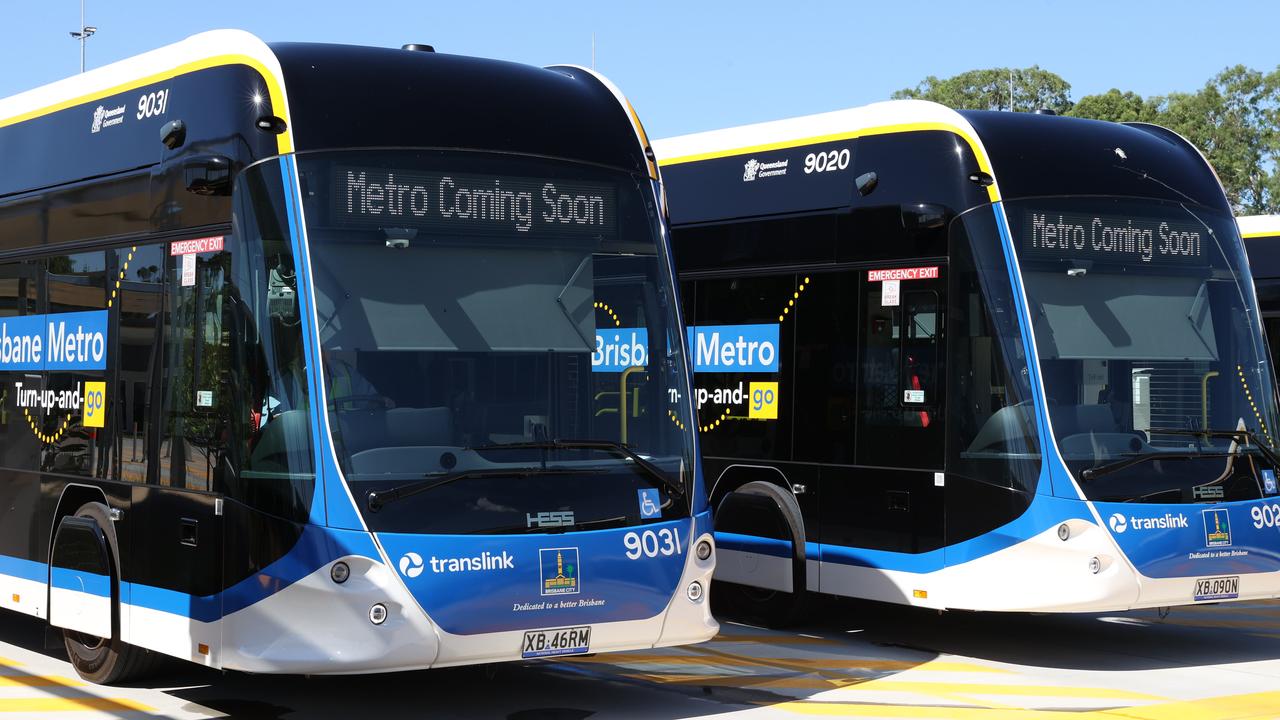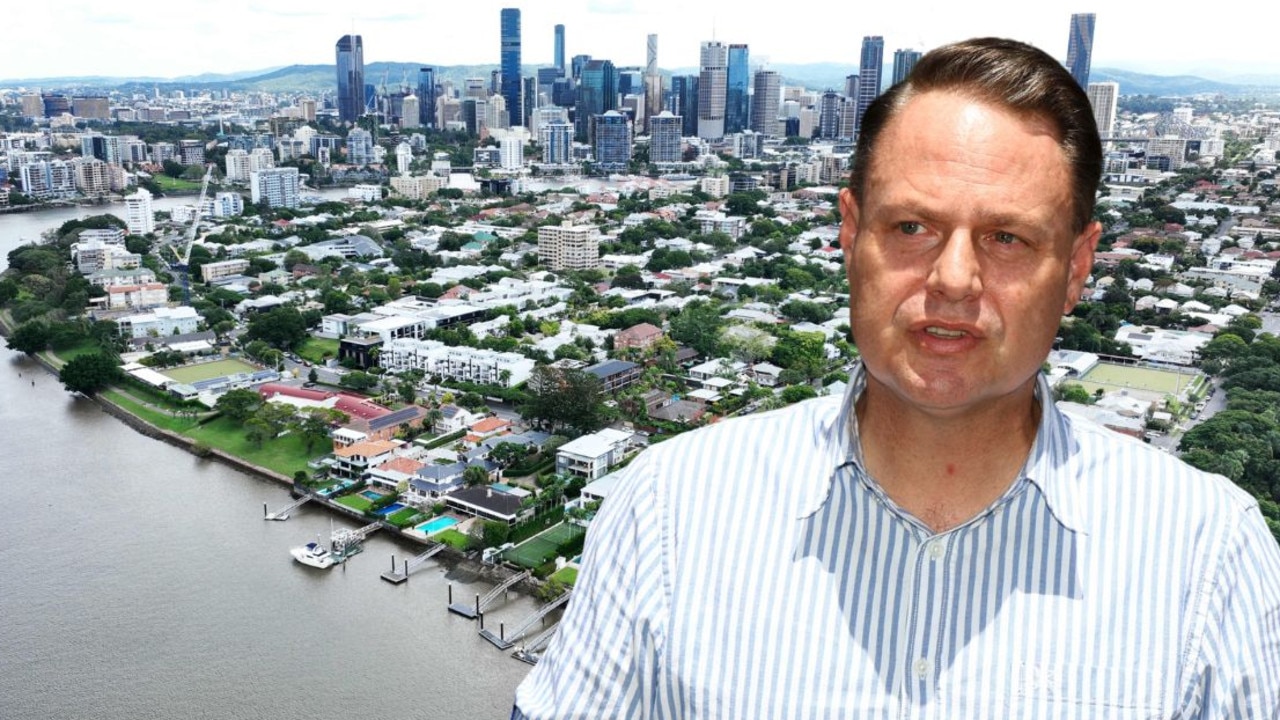Brisbane council election 2024: Housing, homelessness policies
As the 2024 Local Government elections in Brisbane draw near, the housing debate takes centre stage, with each party outlining its vision for addressing the city’s infrastructure, development and homelessness challenges.

QLD Council Elections
Don't miss out on the headlines from QLD Council Elections. Followed categories will be added to My News.
As the 2024 Local Government elections in Brisbane draw near, the housing debate takes centre stage, with each party outlining its vision for addressing the city’s infrastructure, development and homelessness challenges.
The Greens have unveiled an ambitious housing plan, proposing to redevelop the heritage-listed Eagle Farm Racecourse into a mixed-use community, complete with affordable housing, parkland, and recreational facilities, while also advocating for stringent measures to address flooding risks and housing vacancy rates by imposing levy rates and blanket bans on developers.
Brisbane Council Election 2024 guide: Candidates, party promises, preference voting
In contrast, Labor’s mayoral candidate, Tracey Price, emphasises a pragmatic approach to housing issues, focusing on unlocking supply and increasing density while addressing homelessness concerns.
Meanwhile, the LNP-led council’s housing policies centre on incentivising development and infrastructure initiatives.
Independents Bruce Tanti and Gilbert Holmes offer alternative strategies, including land subdivision incentives and the establishment of a council-run construction company.
With divergent approaches on the table, the electorate faces critical decisions in shaping Brisbane’s housing landscape for the future.
Here’s where each party and mayoral candidate stands on housing and development.
GREENS
The Greens have laid out an extensive, ambitious housing plan which includes the following:
Compulsorily acquire the heritage-listed Eagle Farm Racecourse in Ascot for an estimated $40m. Build 4000 medium-density dwellings over a fifth of the 49ha site in buildings no higher than five storeys, which would also have commercial units underneath. Half of the 4000 affordable homes would be available to those on the state’s social housing waitlist and rented for 25 per cent of regular household income.
The other half would be affordable housing available to any Brisbane resident, but rented out at 30 per cent below-market rent.
The rest of the site will be allocated to existing heritage-listed buildings, and under-construction Charlton House apartments which are part of Mirvac’s Ascot Green development.
The Greens would also allocate 25ha of the site as parkland and community sports fields, with the potential for a new public school and medical centre and library.
The party proposes to repurpose the racetrack as a walking and cycling circuit.
All new developments would be banned in Brisbane’s most flood-prone areas.
The veto would apply to sites classified as Flood Planning Areas (FPA) 1 and 2, which are mostly in suburbs such as Herston, Milton, Newstead, West End, Rocklea and Yeronga.
The Greens propose a blanket ban on all new development on FPA1 and FPA2 sites, and to gradually transition them to public parkland, native habitat, sports fields and urban farmland.
In Flood Planning Areas 3-5, the Greens would still allow new development, provided all rooms and essential infrastructure are at least two metres above predicted flood levels.
Vacancy levy to prevent developers and investors leaving buildings and blocks of land empty long-term.
The Greens estimate 5000-15,000 habitable homes in the Brisbane City Council area are sitting empty long-term.
Any investment property left empty continuously for more than six months without a good reason would be liable for the levy.
The levy would apply to houses, apartments, vacant land, and commercial buildings, but not to owner-occupier dwellings.
Tighten planning codes and development assessment processes to cut out “ad hoc exemptions” for developers over building height limits, property boundary setbacks, and heritage protections.
A Greens-led council will also require all new developments to set aside a minimum of 20 per cent of the site for deep-planted trees – up from council’s current minimum of 15 per cent – and ensure that all bedrooms in new residential developments have at least one window.
LABOR
Labor mayoral candidate Tracey Price has claimed her team is “the only one ready to tackle housing stress and homelessness”.
While Labor has not laid out a specific housing plan, it says it will strive to “get more housing built sooner” while ensuring infrastructure keeps pace with population growth.
Ms Price said housing solutions need a more level- headed approach, and a Labor-led council would unlock supply and increase density without “resorting to extremes,” allowing some development on flood-prone areas.
“The Greens only have one approach - controversy for the sake of it,” she said.
“The LNP’s approach is entirely focused on developers and not the communities or people of Brisbane, and the Greens have again confirmed they are anti-car at all costs.”
“The Greens’ have confirmed they are anti-development by proposing a blanket ban on all development in flood prone areas.
“The LNP will allow up to 90-story development in Brisbane and in places like Kurilpa, regardless of the community’s views.
“If elected, I will implement planning changes to better prepare suburbs for the effects of climate change and review the City Plan to implement better standards for development in flood prone areas.
“We will tighten the rules around developments in areas that are prone to flooding, without shutting development down entirely. “
Labor said local government had a particular role to play in tackling homelessness, highlighting it would work with its state counterparts to implement the long-term housing plan.
The party last year pledged $20 million towards homelessness programs to assist crisis accommodation and service providers.
Ms Price claimed the LNP had cut funding to homelessness services during their council term, and said the Greens had an “extremely risky”housing policy around threatening to increase rates, encouraging squatting and voting against infrastructure charge discounts for community housing providers.
“In March, if I’m elected, I will immediately engage with the Queensland and Federal
Governments, as well as the community housing sector and the crisis housing and homelessness support organisations to address what is an incredibly challenging and complex issue,” she said.
LNP
The LNP has not announced specific housing and development plans during this election period.
The LNP-led council has already committed to its Housing Supply Incentive Policy which offers reduced infrastructure charges in certain cases to support housing development.
From July 2023, the LNP-led council announced its Build-to-Rent Incentive Policy which allows developers to apply for infrastructure charge deferrals.
The policy aims to support construction of new build-to-rent residential dwellings.
The LNP has previously supported the Bulimba Barracks development, which will see more than 800 homes built along the Brisbane River.
During his election campaign Lord Mayor Adrian Schrinner said he was “really concerned” Labor and the Greens are locked in “some kind of spending arms race” just to try and grab the attention of Brisbane residents, claiming their funding promises will drive up rates.
“In contrast, our commitments are responsible, fully-costed and focused on building better roads and improving public transport while ensuring Brisbane’s residential rates remain the cheapest in south east Queensland,” he said.
INDEPENDENTS
BRUCE TANTI
Independent mayoral candidate Bruce Tanti said he would look at large blocks of land and make a deal with landowners to subdivide land and to rezone that land so that more houses can be built, “especially those on the mid to outer suburbs”.
Mr Tanti said he would also focus on finding ways to cut “unnecessary red tape” for new builds and find ways to reduce building costs for first homeowners and buyers.
He said he would work with the state government to “see if we can put high voltage transmission lines underground in some areas and use the above surrounding ground for homes for short term”.
He also wants to look at converting industrial and warehousing areas that are no longer used and converting them into housing complexes of small homes, units or apartments.
Mr Tanti said he would consider a rates negotiation program with landlords to help struggling tenants, but said it would only be offered to landlords who didn’t “price gouge”.
“For residential tenants who are struggling financially, look at doing a deal with landlords to reduce rates by the council in order for landlord to reduce rent on the struggling tenants, until those tenants are back on their feet,” he said.
“When this happens when they are back on their feet, restore rates back to normal. But if the landlord is doing price gouging then, they will not be offered this program.”
Mr Tanti would also consider temporarily decreasing rates further for struggling households suffering from mortgage stress.
To tackle homelessness, Mr Tanti said he would look at converting under-utilised council buildings or parks to temporary accommodation, including mobile community bathroom, kitchen and laundry areas.
He would also use old council and non-council buses and convert them to family accommodation.
“These accommodations are on a temporary basis until they get up on their feet financially to afford a bond and two week rent in advance,” he said.
Mr Tanti said he would also offer subdivision incentives to landowners with large private properties in mid to outer Brisbane suburbs.
“So that it is now free from ownership so it can be subdivided into a housing estate community of small plots of land for houses to be put on,” he said.
“The new homes, on these new housing estates, to be made affordable and reachable to most Brisbanites both those that are new owners and those that have lost their homes(flooding, fires, mortgage repossession etc).
“But, not to owners who already live in a home and are well off (non struggling).”
GILBERT HOLMES
Independent candidate Gilbert Holmes said he would attempt to have Brisbane City Council develop and run its own construction company, which supplies housing at cost price.
“This can help to both increase supply and put downward pressure on all housing,” he said.
“Housing is in crisis in Brisbane and beyond. Especially in recent decades, the price of housing has increased well ahead much faster than inflation.
“Younger and lower-income people are priced out of the market to either rent or buy, and homelessness is increasingly visible on the streets.
“I support local communities to own and manage some housing stock in order to support the social needs of local people.”


